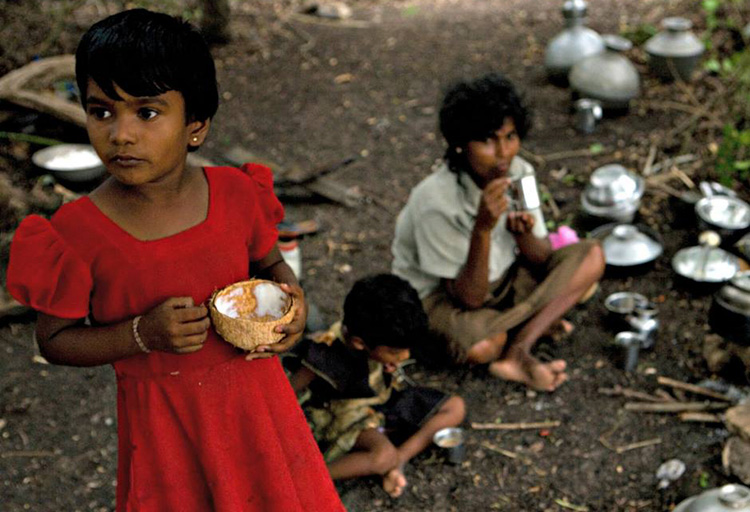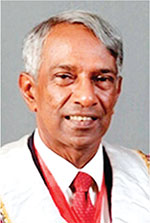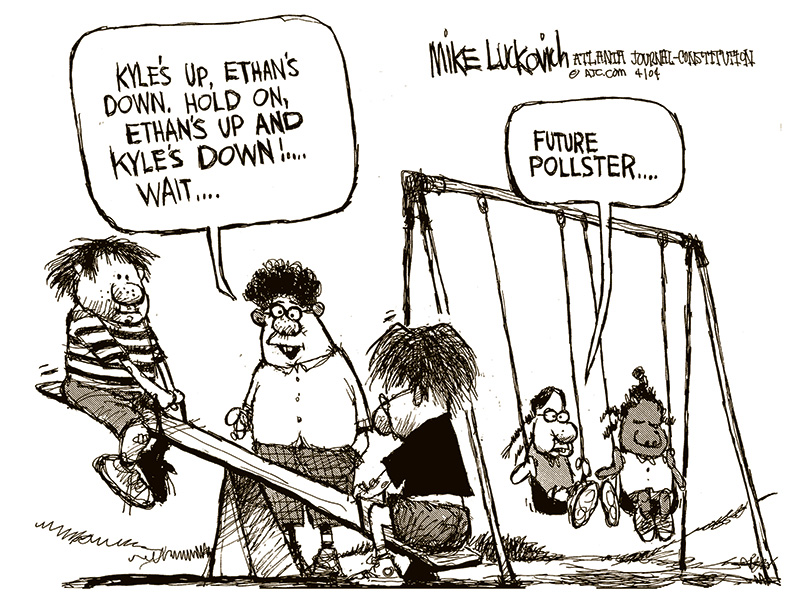Opinion
Meaning of life from Buddhist perspective

 By Dr. Justice Chandradasa Nanayakkkara
By Dr. Justice Chandradasa Nanayakkkara
“Man is born: to live, to suffer: and to die, and what befalls him is a tragic lot. There is no denying this in the end”. This pithy saying of great poignancy attributed to a well known American novelist Thomas Wolfe sums up the lot of mankind on this earth. It carries a profound insight and a deep philosophy of life.
In the face of this statement, the question arises. What is the meaning of life. Why are we here? Why were we born if we were to suffer and die eventually? All of us see life differently and the true meaning of life is far too complex for any human being to comprehend. It is a complex existential question. For ages, it has perplexed many spiritual leaders, philosophers, and other great thinkers. Throughout history, it has also given rise to much philosophical, scientific, and theological speculation.
We live in a restless competitive world, in which men find themselves directionless, uncertain, and lost about the purpose of their existence and they are faced with the existential dilemma of not knowing what to do with their lives. As a result, they look for meaning and direction in life and a quest to escape the fragility of their mortal existence and suffering. , there is an inherent tendency to seek permanence and purpose.
Some believe that the purpose of life is the pursuit of happiness and pleasure. They act under the hedonistic delusion that it is possible to lead a life bereft of pain and suffering by maximising their happiness and minimising suffering by amassing material wealth and possessions. While some others believe life is to fulfill a religious or spiritual destiny. Still, others look at life from a biological perspective, and for them, the purpose of life is to survive procreate, and ensure the continuation of species.
The meaning of life is deeply bound up with the religious conceptions of existence. Many monotheistic religions such as Christianity believe in an omnipotent, creator God who made us and is responsible for our existence and creation. It is this creator God who rewards and punishes the good deeds and ill deeds of the creatures of his creation. It teaches human life has meaning only when it is lived following God’s will and commandments as God rewards with eternal bliss those who live per his commandments. And the lives of those who act in violation of his commandments have no meaning end in disgrace and lead to hell. It leaves the meaning of life not to the individual but to the creator God.
Buddha on the other hand builds his discourse on the issue of human suffering and the nature of our existence. According to Buddhism, our life is characterised by dukkha (suffering), all beings suffer in one way or another. Suffering may be physical or mental or both. Suffering is brought about by all conditioned things that depend on causes, they continue to change with the changes of causes and conditions, and they do not have a permanent form. Mahaparinibbna sutta states “Impermanent are all component things, they arise and cease, that is their nature’, They come into being and pass away, Release from them is bliss supreme” (Annicca vata sankara -uppada vaya dha mmino, Uppajitva nirujjhanti -tesam vupasamosukkho.)
The essence of Buddha’s teaching is contained in his four noble truths. They are the truth of suffering, the origin of suffering, the cessation of suffering the path that leads to the cessation of suffering, and the final liberation from suffering (nirvana).
The first noble truth expounds human life is pervaded by dukkha (Suffering). Life has pleasant phases and happy moments but the sense of frustration emptiness suffering pervades the lives of all people. Human life is inherently frustrating and pervaded by a sense of suffering. Dukkha can be anything from small irritations to intense suffering. Dukkha encompasses not only tragedies, death, and grief, but also, old age, diseases, association with the unpleasant, separation from loved ones and. notions such as insubstantiality, impermanence, and a lack of satisfaction. It also includes extreme poverty, hunger starvation, and suffering people undergo as a result of wars.
Most of the suffering people are subject to is self-created. It is how we react to it that determines whether or not we suffer. In Buddhism, there is a cause and solution for our suffering. The solution cannot be found by placing any reliance on an omnipotent divine being, praying, or worshiping any deity. It is by training our minds to see the reality as it is.
According to Buddhism, Human life has no absolute and inherent meaning. Life is a self-created illusion without any meaning and the world as it presents itself to us does not make much sense. According to Buddhism, it is we who give meaning to life by our interpretation of it. It is we who define the real purpose and worth of life. Life is what you make of it.
People are suffering and discontent because they are unwilling to comprehend their existence’s fragility and transitory nature. It was the great Greek philosopher Heraclitus who once declared that all things are in a state of flux and that change is the essential nature of reality. Everything, whether in the realm of natural phenomena or human affairs changes continuously from moment to moment. All is in a whirl, nothing escapes this inexorable, unceasing change. Nothing remains in the same state even for the briefest instant.
The transitory and fluid nature of everything constitutes basic features of Buddhist teachings. The same applies to the human body. It constantly changes from conception to birth People often fail to recognize or appreciate the impermanence of all conditioned things. They do not even like to acknowledge their mortality and avoid discussing the subject of death thinking it depressing and morbid. But the brutal fact remains we die sooner or later. Death hovers over all of us. It is the universal law all animate and inanimate things eventually come to an end. It is an uncomfortable truth every human being has to face one day. The time of death is uncertain and unpredictable, but the truth of death is not. It is part of the human cycle. Awareness of death makes people perceive the ultimate futility of worldly concerns and pleasures. Death weighs heavily on the human mind, as an inescapable reminder of the finite nature of our existence. Focusing on the truth of our mortality acts as a powerful catalyst for living a meaningful life.
Buddhism teaches us that it is our insatiable desires that bring about our dukkha (suffering). People’s aspirations and desires are infinite, although, their lives are finite Despite everything being transient and ephemeral, people develop attachments and clutch at material things as if they are eternal and permanent. People waste their lives in the pursuit of empty dreams. They frantically run after transitory pleasures and material objects, foolishly believing that wealth, power, and material possessions will bring lasting happiness.
They act under the delusion that the acquisition of more and more material things leads to happier and, more contented fulfilled lives. They entertain the notion that happiness is proportional to the quantity and monetary value of their possessions. But if we deeply examine the lives of people engaged in the pursuit of world pleasure we would find that in their hearts of heart, they have very little real happiness and contentment. Happiness is not determined by our material wealth and worldly success but by our inner qualities of mind and heart not by what we have, but by what we are. Their attempt to satisfy their insatiable desires can be likened to an attempt to slake their thirst by drinking salt water, as drinking salt water far from quenching their thirst will increase it. (Bhikikhu Bohdi). A person enveloped in delusion (avijja) falls prey to craving wealth, power, and status bringing suffering not only upon himself but to others as well. Life’s greatest sorrows and pain come from attachment
Therefore, the goal of Buddhists should be to seek enlightenment by cultivating a deeper understanding of the nature of existence. to escape samsara which is a cycle of birth, suffering, and death. Buddhists are expected to strive for wisdom and inner peace by practicing meditation and ending the cycle. Buddha preached to the world Four Noble Truths that enable one to put an end to the cycle of suffering and attain the ultimate bliss of Nirvana.
Buddhism emphasises adherence to moral and ethical practices in our daily life. In Buddhism, ethics and morality play a crucial role in guiding people to live a harmonious life and how to interact with each other. Buddhism upholds lofty and demanding moral and ethical values in many of its scriptures and codes of conduct. Buddha declared in many discourses that true happiness could only be realized by leading a life of moral rectitude and virtue. Both ethics and morality help us to abandon the distorted projections that our thoughts and emotions create and also to promote collaboration and community existence. Moral and ethical values are standards by which we distinguish between right and wrong. According to Buddhism, all actions motivated by greed, hatred, and delusion are unwholesome and they are called akusala kamma. All actions that are rooted in the virtues of generosity, love, and wisdom are wholesome. They are called kusala kamma. The ultimate goal in buddhism is to end the cycle of suffering and the cycle of repeated death and rebirth by eliminating three defilements (kilesa) greed, hatred, and delusion.
When we look at the world around us, we can see many find themselves suffering in unprecedented ways. Extending our attention with sympathy and compassion in their direction would bring them a great deal of solace By choosing to lead an ethical life, we contribute to a more compassionate, just, and harmonious world. Buddhism provides people with a way to deal with life’s challenges when they are confronted with the reality of existence. By incorporating Buddhist values into our daily lives we navigate many challenges.
Moral and ethical conduct that a Buddhist should observe can be summed up in one stanza. “Subbapassa akaranam, kusalsssa upasampada, sacittapariyodapanam, etam Buddana sasanam” which means the avoidance of evil, cultivation of the good, and purifying of one’s mind.
Opinion
Child food poverty: A prowling menace

 by Dr B.J.C.Perera
by Dr B.J.C.Perera
MBBS(Cey), DCH(Cey), DCH(Eng), MD(Paed), MRCP(UK), FRCP(Edin),
FRCP(Lon), FRCPCH(UK), FSLCPaed, FCCP, Hony FRCPCH(UK), Hony. FCGP(SL)
Specialist Consultant Paediatrician and Honorary Senior Fellow,
Postgraduate Institute of Medicine, University of Colombo, Sri Lanka.
Joint Editor, Sri Lanka Journal of Child Health
In an age of unprecedented global development, technological advancements, universal connectivity, and improvements in living standards in many areas of the world, it is a very dark irony that child food poverty remains a pressing issue. UNICEF defines child food poverty as children’s inability to access and consume a nutritious and diverse diet in early childhood. Despite the planet Earth’s undisputed capacity to produce enough food to nourish everyone, millions of children still go hungry each day. We desperately need to explore the multifaceted deleterious effects of child food poverty, on physical health, cognitive development, emotional well-being, and societal impacts and then try to formulate a road map to alleviate its deleterious effects.
Every day, right across the world, millions of parents and families are struggling to provide nutritious and diverse foods that young children desperately need to reach their full potential. Growing inequities, conflict, and climate crises, combined with rising food prices, the overabundance of unhealthy foods, harmful food marketing strategies and poor child-feeding practices, are condemning millions of children to child food poverty.
In a communique dated 06th June 2024, UNICEF reports that globally, 1 in 4 children; approximately 181 million under the age of five, live in severe child food poverty, defined as consuming at most, two of eight food groups in early childhood. These children are up to 50 per cent more likely to suffer from life-threatening malnutrition. Child Food Poverty: Nutrition Deprivation in Early Childhood – the third issue of UNICEF’s flagship Child Nutrition Report – highlights that millions of young children are unable to access and consume the nutritious and diverse diets that are essential for their growth and development in early childhood and beyond.
It is highlighted in the report that four out of five children experiencing severe child food poverty are fed only breastmilk or just some other milk and/or a starchy staple, such as maize, rice or wheat. Less than 10 per cent of these children are fed fruits and vegetables and less than 5 per cent are fed nutrient-dense foods such as eggs, fish, poultry, or meat. These are horrendous statistics that should pull at the heartstrings of the discerning populace of this world.
The report also identifies the drivers of child food poverty. Strikingly, though 46 per cent of all cases of severe child food poverty are among poor households where income poverty is likely to be a major driver, 54 per cent live in relatively wealthier households, among whom poor food environments and feeding practices are the main drivers of food poverty in early childhood.
One of the most immediate and visible effects of child food poverty is its detrimental impact on physical health. Malnutrition, which can result from both insufficient calorie intake and lack of essential nutrients, is a prevalent consequence. Chronic undernourishment during formative years leads to stunted growth, weakened immune systems, and increased susceptibility to infections and diseases. Children who do not receive adequate nutrition are more likely to suffer from conditions such as anaemia, rickets, and developmental delays.
Moreover, the lack of proper nutrition can have long-term health consequences. Malnourished children are at a higher risk of developing chronic illnesses such as heart disease, diabetes, and obesity later in life. The paradox of child food poverty is that it can lead to both undernutrition and overnutrition, with children in food-insecure households often consuming calorie-dense but nutrient-poor foods due to economic constraints. This dietary pattern increases the risk of obesity, creating a vicious cycle of poor health outcomes.
The impacts of child food poverty extend beyond physical health, severely affecting cognitive development and educational attainment. Adequate nutrition is crucial for brain development, particularly in the early years of life. Malnutrition can impair cognitive functions such as attention, memory, and problem-solving skills. Studies have consistently shown that malnourished children perform worse academically compared to their well-nourished peers. Inadequate nutrition during early childhood can lead to reduced school readiness and lower IQ scores. These children often struggle to concentrate in school, miss more days due to illness, and have lower overall academic performance. This educational disadvantage perpetuates the cycle of poverty, as lower educational attainment reduces future employment opportunities and earning potential.
The emotional and psychological effects of child food poverty are profound and are often overlooked. Food insecurity creates a constant state of stress and anxiety for both children and their families. The uncertainty of not knowing when or where the next meal will come from can lead to feelings of helplessness and despair. Children in food-insecure households are more likely to experience behavioural problems, including hyperactivity, aggression, and withdrawal. The stigma associated with poverty and hunger can further exacerbate these emotional challenges. Children who experience food poverty may feel shame and embarrassment, leading to social isolation and reduced self-esteem. This psychological toll can have lasting effects, contributing to mental health issues such as depression and anxiety in adolescence and adulthood.
Child food poverty also perpetuates cycles of poverty and inequality. Children who grow up in food-insecure households are more likely to remain in poverty as adults, continuing the intergenerational transmission of disadvantage. This cycle of poverty exacerbates social disparities, contributing to increased crime rates, reduced social cohesion, and greater reliance on social welfare programmes. The repercussions of child food poverty ripple through society, creating economic and social challenges that affect everyone. The healthcare costs associated with treating malnutrition-related illnesses and chronic diseases are substantial. Additionally, the educational deficits linked to child food poverty result in a less skilled workforce, which hampers economic growth and productivity.
Addressing child food poverty requires a multi-faceted approach that tackles both immediate needs and underlying causes. Policy interventions are crucial in ensuring that all children have access to adequate nutrition. This can include expanding social safety nets, such as food assistance programmes and school meal initiatives, as well as targeted manoeuvres to reach more vulnerable families. Ensuring that these programmes are adequately funded and effectively implemented is essential for their success.
In addition to direct food assistance, broader economic and social policies are needed to address the root causes of poverty. This includes efforts to increase household incomes through living wage policies, job training programs, and economic development initiatives. Supporting families with affordable childcare, healthcare, and housing can also alleviate some of the financial pressures that contribute to food insecurity.
Community-based initiatives play a vital role in combating child food poverty. Local food banks, community gardens, and nutrition education programmes can help provide immediate relief and promote long-term food security. Collaborative efforts between government, non-profits, and the private sector are necessary to create sustainable solutions.
Child food poverty is a profound and inescapable issue with far-reaching consequences. Its deleterious effects on physical health, cognitive development, emotional well-being, and societal stability underscore the urgent need for comprehensive action. As we strive for a more equitable and just world, addressing child food poverty must be a priority. By ensuring that all children have access to adequate nutrition, we can lay the foundation for a healthier, more prosperous future for individuals and society as a whole. The fight against child food poverty is not just a moral imperative but an investment in our collective future. Healthy, well-nourished children are more likely to grow into productive, contributing members of society. The benefits of addressing this issue extend beyond individual well-being, enhancing economic stability and social harmony. It is incumbent upon us all to recognize and act upon the understanding that every child deserves the right to adequate nutrition and the opportunity to thrive.
Despite all of these existent challenges, it is very definitely possible to end child food poverty. The world needs targeted interventions to transform food, health, and social protection systems, and also take steps to strengthen data systems to track progress in reducing child food poverty. All these manoeuvres must comprise a concerted effort towards making nutritious and diverse diets accessible and affordable to all. We need to call for child food poverty reduction to be recognized as a metric of success towards achieving global and national nutrition and development goals.
Material from UNICEF reports and AI assistance are acknowledged.
Opinion
Do opinion polls matter?

By Dr Upul Wijayawardhana
The colossal failure of not a single opinion poll predicting accurately the result of the Indian parliamentary election, the greatest exercise in democracy in the world, raises the question whether the importance of opinion polls is vastly exaggerated. During elections two types of opinion polls are conducted; one based on intentions to vote, published during or before the campaign, often being not very accurate as these are subject to many variables but exit polls, done after the voting where a sample tally of how the voters actually voted, are mostly accurate. However, of the 15 exit polls published soon after all the votes were cast in the massive Indian election, 13 vastly overpredicted the number of seats Modi’s BJP led coalition NDA would obtain, some giving a figure as high as 400, the number Modi claimed he is aiming for. The other two polls grossly underestimated predicting a hung parliament. The actual result is that NDA passed the threshold of 272 comfortably, there being no landslide. BJP by itself was not able to cross the threshold, a significant setback for an overconfident Mody! Whether this would result in less excesses on the part of Modi, like Muslim-bashing, remains to be seen. Anyway, the statement issued by BJP that they would be investigating the reasons for failure rather than blaming the process speaks very highly of the maturity of the democratic process in India.
I was intrigued by this failure of opinion polls as this differs dramatically from opinion polls in the UK. I never failed to watch ‘Election night specials’ on BBC; as the Big Ben strikes ‘ten’ (In the UK polls close at 10pm} the anchor comes out with “Exit polls predict that …” and the actual outcome is often almost as predicted. However, many a time opinion polls conducted during the campaign have got the predictions wrong. There are many explanations for this.
An opinion poll is defined as a research survey of public opinion from a particular sample, the origin of which can be traced back to the 1824 US presidential election, when two local newspapers in North Carolina and Delaware predicted the victory of Andrew Jackson but the sample was local. First national survey was done in 1916 by the magazine, Literary Digest, partly for circulation-raising, by mailing millions of postcards and counting the returns. Of course, this was not very scientific though it accurately predicted the election of Woodrow Wilson.
Since then, opinion polls have grown in extent and complexity with scientific methodology improving the outcome of predictions not only in elections but also in market research. As a result, some of these organisations have become big businesses. For instance, YouGov, an internet-based organisation co-founded by the Iraqi-born British politician Nadim Zahawi, based in London had a revenue of 258 million GBP in 2023.
In Sri Lanka, opinion polls seem to be conducted by only one organisation which, by itself, is a disadvantage, as pooled data from surveys conducted by many are more likely to reflect the true situation. Irrespective of the degree of accuracy, politicians seem to be dependent on the available data which lend explanations to the behaviour of some.
The Institute for Health Policy’s (IHP) Sri Lanka Opinion Tracker Survey has been tracking the voting intentions for the likely candidates for the Presidential election. At one stage the NPP/JVP leader AKD was getting a figure over 50%. This together with some degree of international acceptance made the JVP behave as if they are already in power, leading to some incidents where their true colour was showing.
The comments made by a prominent member of the JVP who claimed that the JVP killed only the riff-raff, raised many questions, in addition to being a total insult to many innocents killed by them including my uncle. Do they have the authority to do so? Do extra-judicial killings continue to be JVP policy? Do they consider anyone who disagrees with them riff-raff? Will they kill them simply because they do not comply like one of my admired teachers, Dr Gladys Jayawardena who was considered riff-raff because she, as the Chairman of the State Pharmaceutical Corporation, arranged to buy drugs cheaper from India? Is it not the height of hypocrisy that AKD is now boasting of his ties to India?
Another big-wig comes with the grand idea of devolving law and order to village level. As stated very strongly, in the editorial “Pledges and reality” (The Island, 20 May) is this what they intend to do: Have JVP kangaroo-courts!
Perhaps, as a result of these incidents AKD’s ratings has dropped to 39%, according to the IHP survey done in April, and Sajith Premadasa’s ratings have increased gradually to match that. Whilst they are level pegging Ranil is far behind at 13%. Is this the reason why Ranil is getting his acolytes to propagate the idea that the best for the country is to extend his tenure by a referendum? He forced the postponement of Local Governments elections by refusing to release funds but he cannot do so for the presidential election for constitutional reasons. He is now looking for loopholes. Has he considered the distinct possibility that the referendum to extend the life of the presidency and the parliament if lost, would double the expenditure?
Unfortunately, this has been an exercise in futility and it would not be surprising if the next survey shows Ranil’s chances dropping even further! Perhaps, the best option available to Ranil is to retire gracefully, taking credit for steadying the economy and saving the country from an anarchic invasion of the parliament, rather than to leave politics in disgrace by coming third in the presidential election. Unless, of course, he is convinced that opinion polls do not matter and what matters is the ballots in the box!
Opinion
Thoughtfulness or mindfulness?

By Prof. Kirthi Tennakone
ktenna@yahoo.co.uk
Thoughtfulness is the quality of being conscious of issues that arise and considering action while seeking explanations. It facilitates finding solutions to problems and judging experiences.
Almost all human accomplishments are consequences of thoughtfulness.
Can you perform day-to-day work efficiently and effectively without being thoughtful? Obviously, no. Are there any major advancements attained without thought and contemplation? Not a single example!
Science and technology, art, music and literary compositions and religion stand conspicuously as products of thought.
Thought could have sinister motives and the only way to eliminate them is through thought itself. Thought could distinguish right from wrong.
Empathy, love, amusement, and expression of sorrow are reflections of thought.
Thought relieves worries by understanding or taking decisive action.
Despite the universal virtue of thoughtfulness, some advocate an idea termed mindfulness, claiming the benefits of nurturing this quality to shape mental wellbeing. The concept is defined as focusing attention to the present moment without judgment. A way of forgetting the worries and calming the mind – a form of meditation. A definition coined in the West to decouple the concept from religion. The attitude could have a temporary advantage as a method of softening negative feelings such as sorrow and anger. However, no man or woman can afford to be non-judgmental all the time. It is incompatible with indispensable thoughtfulness! What is the advantage of diverting attention to one thing without discernment during a few tens of minute’s meditation? The instructors of mindfulness meditation tell you to focus attention on trivial things. Whereas in thoughtfulness, you concentrate the mind on challenging issues. Sometimes arriving at groundbreaking scientific discoveries, solution of mathematical problems or the creation of masterpieces in engineering, art, or literature.
The concept of meditation and mindfulness originated in ancient India around 1000 BCE. Vedic ascetics believed the practice would lead to supernatural powers enabling disclosure of the truth. Failing to meet the said aspiration, notwithstanding so many stories in scripture, is discernable. Otherwise, the world would have been awakened to advancement by ancient Indians before the Greeks. The latter culture emphasized thoughtfulness!
In India, Buddha was the first to deviate from the Vedic philosophy. His teachers, Alara Kalama and Uddaka Ramaputra, were adherents of meditation. Unconvinced of their approach, Buddha concluded a thoughtful analysis of the actualities of life should be the path to realisation. However, in an environment dominated by Vedic tradition, meditation residually persisted when Buddha’s teachings transformed into a religion.
In the early 1970s, a few in the West picked up meditation and mindfulness. We Easterners, who criticize Western ideas all the time, got exalted after seeing something Eastern accepted in the Western circles. Thereafter, Easterners took up the subject more seriously, in the spirit of its definition in the West.
Today, mindfulness has become a marketable commodity – a thriving business spreading worldwide, fueled largely by advertising. There are practice centres, lessons onsite and online, and apps for purchase. Articles written by gurus of the field appear on the web.
What attracts people to mindfulness programmes? Many assume them being stressed and depressed needs to improve their mental capacity. In most instances, these are minor complaints and for understandable reasons, they do not seek mainstream medical interventions but go for exaggeratedly advertised alternatives. Mainstream medical treatments are based on rigorous science and spell out both the pros and cons of the procedure, avoiding overstatement. Whereas the alternative sector makes unsubstantiated claims about the efficacy and effectiveness of the treatment.
Advocates of mindfulness claim the benefits of their prescriptions have been proven scientifically. There are reports (mostly in open-access journals which charge a fee for publication) indicating that authors have found positive aspects of mindfulness or identified reasons correlating the efficacy of such activities. However, they rarely meet standards normally required for unequivocal acceptance. The gold standard of scientific scrutiny is the statistically significant reproducibility of claims.
If a mindfulness guru claims his prescription of meditation cures hypertension, he must record the blood pressure of participants before and after completion of the activity and show the blood pressure of a large percentage has stably dropped and repeat the experiment with different clients. He must also conduct sessions where he adopts another prescription (a placebo) under the same conditions and compares the results. This is not enough, he must request someone else to conduct sessions following his prescription, to rule out the influence of the personality of the instructor.
The laity unaware of the above rigid requirements, accede to purported claims of mindfulness proponents.
A few years ago, an article published and widely cited stated that the practice of mindfulness increases the gray matter density of the brain. A more recent study found there is no such correlation. Popular expositions on the subject do not refer to the latter report. Most mindfulness research published seems to have been conducted intending to prove the benefits of the practice. The hard science demands doing the opposite as well-experiments carried out intending to disprove the claims. You need to be skeptical until things are firmly established.
Despite many efforts diverted to disprove Einstein’s General Theory of Relativity, no contradictions have been found in vain to date, strengthening the validity of the theory. Regarding mindfulness, as it stands, benefits can neither be proved nor disproved, to the gold standard of scientific scrutiny.
Some schools in foreign lands have accommodated mindfulness training programs hoping to develop the mental facility of students and Sri Lanka plans to follow. However, studies also reveal these exercises are ineffective or do more harm than good. Have we investigated this issue before imitation?
Should we force our children to focus attention on one single goal without judgment, even for a moment?
Why not allow young minds to roam wild in their deepest imagination and build castles in the air and encourage them to turn these fantasies into realities by nurturing their thoughtfulness?
Be more thoughtful than mindful?


















